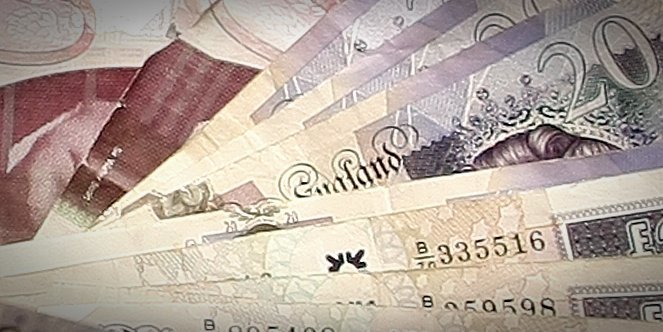A Tayside union leader has blasted government plans to increase public sector pension contributions, branding the proposal a tax on workers “by the back door.”
Rory Malone, regional officer for Unison, said the extra cash raised will not be ploughed back into the pension schemes but will simply go to help plug the national deficit.
Mr Malone spoke out after the government announced a consultation on how much extra more than two million public service employees across the UK will be expected to pay in pension contributions from April.
The proposal will hit civil servants across Great Britain, as well as NHS workers and teachers in England and Wales, and unions warned that the government’s determination to push ahead with the plan could lead to extensive industrial unrest and disruption.
The government estimated that 750,000 staff earning less than £15,000 a year will not pay any higher contributions at all but is proposing that those earning above that will pay more on a sliding scale starting at 0.6% as of April.
The Treasury predicts the measure would save £530m in the NHS pension scheme, £300m from the teachers’ scheme and £180m in the civil service scheme next year alone.
The announcement follows Lord Hutton’s review of public sector pension schemes, which recommended higher contributions and a move from final-salary to career-average pensions.
Schemes for NHS workers, teachers, police, firefighters and local government staff in Scotland are overseen by the Scottish Public Pensions Agency. While those schemes are not directly affected by Thursday’s announcement, it will have a knock-on effect, Mr Malone said.
Finance secretary John Swinney has said that, though the Scottish Government is opposed to the increase in contributions, failure to fall into line with the Westminster Government’s plan would lead to a £400 million cut in the block grant next year.
“Basically, the grant will be reduced to match the money the government is trying to hive off our pensions,” said Mr Malone, adding that if the schemes become less affordable, they could be shunned by employees.
Continued…
“My biggest fear is that the schemes will become less viable because people who are already on a pay freeze and struggling to even put bread on the table are going to say they have no money for the contributions.”
The loss of that revenue to the government could lead to further cuts in essential services, Mr Malone suggested.
Feelings are running high among the 20 million public sector pension scheme members.
“These organisations are going to come together and will be taking ballots for industrial action and we may see the biggest strike this country has ever seen since the general strike because people are angry.”
Jonathan Baume, general secretary of the FDA, which represents senior managers and professionals in the civil service, also warned of the possibility of industrial action.
“The FDA is continuing to make active preparations in the event that a ballot on industrial action is required,” he said.
Cheryl Gedling, of the Public and Commercial Services Union (PCS) national executive committee, welcomed the Scottish Government’s stated opposition to the pension contribution increases. However, she added, “Scottish ministers could have helped to make things a bit less painful by taking a different approach to pay but they simply chose to implement the Westminster pay freeze, which in real terms is a pay cut, and now we are facing having to pay more for our pensions while the cost of living in Scotland is increasing.”
PCS general secretary Mark Serwotka said, “We’re committed to negotiation but these have to be serious not limited to the government’s predetermined outcomes. Already more trade unions have indicated they will take part in further strike action and today’s announcement will only increase that resolve.”
GMB national secretary for public services Brian Strutton said his union’s warnings have gone unheeded.
“The consequence will be reduced income to Treasury and increased reliance on state benefits in the future,” he said.
